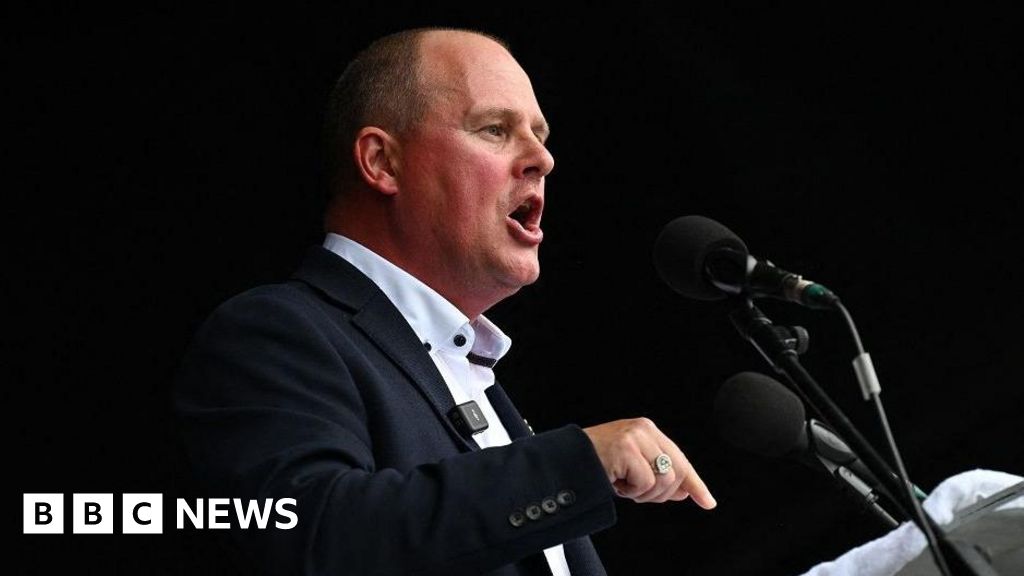
To counter this existential threat to social peace, governments must invest in quality public services such as education, health and infrastructure that make a real difference to people’s lives.
So, today’s most significant dilemma for democracy is how to raise revenue. The answer is simple: go after the money where it is, in the hands of big multinationals and super-rich individuals who are experts at hiding it to avoid paying their fair share of taxes.
The good news: The idea of a global minimum tax on the ultra-rich is gaining momentum. This is not only the right thing to do, but also the most popular thing to do, as recent polls show. A survey of 22,000 citizens in the world’s largest economies by the Earth4All initiative shows that an overwhelming majority of G20 respondents (68 per cent) support higher taxes on the wealthy to finance significant economic and lifestyle changes.
Another poll, commissioned by Patriotic Millionaires, a high-net worth Americans NGO, found that over 60 per cent of those surveyed viewed expanding inequality as a threat to democracy. The majority (62 per cent) of the 800 interviewed adults with assets – excluding their homes – of more than USD 1 million, support an international standard for taxing the super-rich.
In other words, there is a widespread perception that the current international system is outdated, unfair and encourages high levels of tax evasion and avoidance by the powerful.
The recent proposal by the Brazilian presidency of the G20 to negotiate a global standard of at least 2 per cent tax on the world’s super-rich, comprising approximately 3,000 individuals, has brought renewed attention to this issue. In line with this, Professor Gabriel Zucman, a colleague of mine on the Independent Commission for the Reform of International Corporate Taxation (ICRICT), has published a report mandated by the Brazilian G20 leadership entitled” A blueprint for a coordinated minimum tax on ultra-high-net-worth individuals“. Released ahead of the G20 Finance Ministers’ Summit in July, the report provides insights into the implementation of such a tax, supported also by Spain, France and South Africa, among others.
Even the last G7 summit in Italy has committed to working with Brazil to advance international cooperation on this matter[i].
Nigerians need credible journalism. Help us report it.
PREMIUM TIMES delivers fact-based journalism for Nigerians, by Nigerians — and our community of supporters, the readers who donate, make our work possible. Help us bring you and millions of others in-depth, meticulously researched news and information.
It’s essential to acknowledge that news production incurs expenses, and we take pride in never placing our stories behind a prohibitive paywall.
Will you support our newsroom with a modest donation to help maintain our commitment to free, accessible news?
Already a decade ago, several abusive scandals revealed by whistleblowers such as the Panama Papers, Luxleaks, and Pandora papers, opened the eyes of the citizens around the world and led the G20/OECD to launch a reform process that culminated in the “two-pillar solution.” This proposal stipulates that very large multinational corporations should pay taxes in all the places where they operate (Pillar One); and it held there should be a minimum 15 per cent global corporate-income-tax rate (Pillar Two). While this solution helped move the issue forward, the outcome was far from beneficial to developing countries. Disillusioned by the results and manipulations of the advanced economies, countries decided to take the discussion to the United Nations.
Last November, at the request of the countries of the African Union, the UN General Assembly adopted by a large majority a resolution to launch negotiations on a UN framework convention on tax cooperation. An ad hoc intergovernmental committee will draw up the terms of reference for this new body by August.
Negotiations are progressing in Latin America. The winds in favour of regional fiscal coordination have led to the creation of a Regional Latin American and Caribbean Platform for Tax Cooperation (PTLAC), which Chile is chairing this year.
If this growing trend of tax cooperation continues in the right direction, developing countries could have the resources they need to invest in public services and tackle global challenges such as the climate emergency (last May was the warmest on record and the 12th consecutive month of record-high temperatures for the planet). These phenomena need to be addressed urgently with investment in public services.
Unfortunately, decades of privatisation and commercialisation have weakened the capacity of public services and exacerbated inequalities. We need to reverse this trend by increasing domestic resource mobilisation through tax cooperation, as advocated by Brazil at the G20 and the African Union at the UN.
This may be the only hope for emerging economies, burdened by unsustainable debt and uncontrolled inflation, to secure the resources necessary to meet societal demands. By taxing multinationals and the super-rich fairly, we can generate much-needed revenue. This will not only promote social cohesion, but also provide us with the tools to overcome the threats to our democracies.
Quality public services are the bedrock of any functioning society and our primary tool for tackling global challenges and driving meaningful change. Investing in them can provide society with an effective antidote to the real threats of extremism and populism, safeguarding our future.
Magdalena Sepúlveda is the executive director of the Global Initiative for Economic, Social and Cultural Rights (GI-ESCR). She is also a member of the Independent Commission for the Reform of International Corporate Taxation (ICRICT). She was the UN Special Rapporteur on Extreme Poverty and Human Rights.
[i] “We will continue to work constructively with the Brazilian G20 Presidency to advance international cooperation. We will work to increase our efforts aimed at progressive and fair taxation of individuals.”, Apulia G7 Leaders’ Communiqué, 15 June.
Support PREMIUM TIMES' journalism of integrity and credibility
At Premium Times, we firmly believe in the importance of high-quality journalism. Recognizing that not everyone can afford costly news subscriptions, we are dedicated to delivering meticulously researched, fact-checked news that remains freely accessible to all.
Whether you turn to Premium Times for daily updates, in-depth investigations into pressing national issues, or entertaining trending stories, we value your readership.
It’s essential to acknowledge that news production incurs expenses, and we take pride in never placing our stories behind a prohibitive paywall.
Would you consider supporting us with a modest contribution on a monthly basis to help maintain our commitment to free, accessible news?
TEXT AD: Call Willie - +2348098788999

















 English (US) ·
English (US) ·